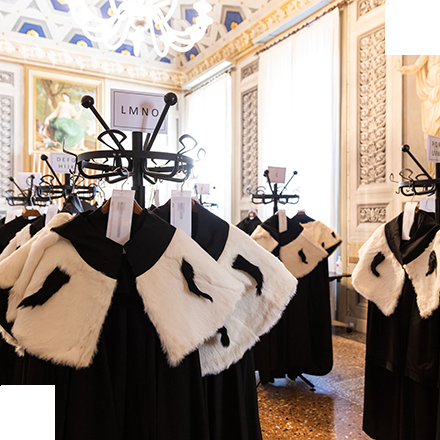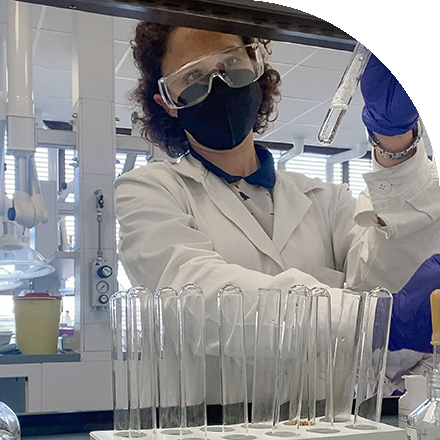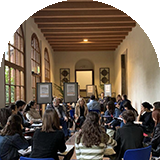Università Cattolica del Sacro Cuore Largo A. Gemelli, 1 - 20123 Milan
Nour
"I arrived in Italy in September 2016 without knowing a word of Italian, and the following month I was supposed to start attending university." The impact of Nour, a Syrian girl who arrived in Italy through a solidarity project promoted by Università Cattolica thanks to her friendship with the monastic community of Deir Mar Musa and in collaboration with the Archdiocese of Milan, was certainly not an easy one with Europe.
Together with four other young people from his country, he was welcomed the time necessary to complete his studies at the Milan and Piacenza campuses. And today he has reached the milestone of a degree in Education.
Nour, who was studying Nursing in Syria, when he had the opportunity for a scholarship to come to Italy, began attending the Faculty of Education at the Piacenza campus of the University.
"It was a very difficult time, also because I was away from my family and didn't know anyone. The first year I attended the Italian course for two months and after six months I started to speak, although not very well," she says. But the help of her friends, who passed her notes and spent a lot of time with her to allow her to learn the language, was decisive.
"I remember the first day of class: I didn't understand anything that was being said and I went home in tears. But I held on, and day after day, by dint of listening, I began to understand. I was helped a lot by the words of Professor Daniele Bruzzone who told me that within a few months I would learn Italian. Several times in the first year I thought I wouldn't make it and this sentence has always given me the strength to keep going. As well as the words of all the other professors who have been close to me."
Nour comes from a country at war, "a situation in which it is impossible to live normally because the strongest feeling is fear." And his thesis started from there. "It's called 'Resilience Processes among Syrian Refugee Citizens in Europe'. I dealt with refugees and their journey fleeing the war. A thesis that was very important for me because I dealt with my country."
"These three years have been very difficult but also very important. I've grown a lot and I didn't think I'd be able to manage on my own. Many people, students and professors, have been close to me. When I grow up I would like to be an educator, perhaps in my country as soon as the war ends. My future, for now, takes me away from Piacenza: I'm leaving for Germany. I am calm and convinced that I will be able to make it even if I start studying a new language."






